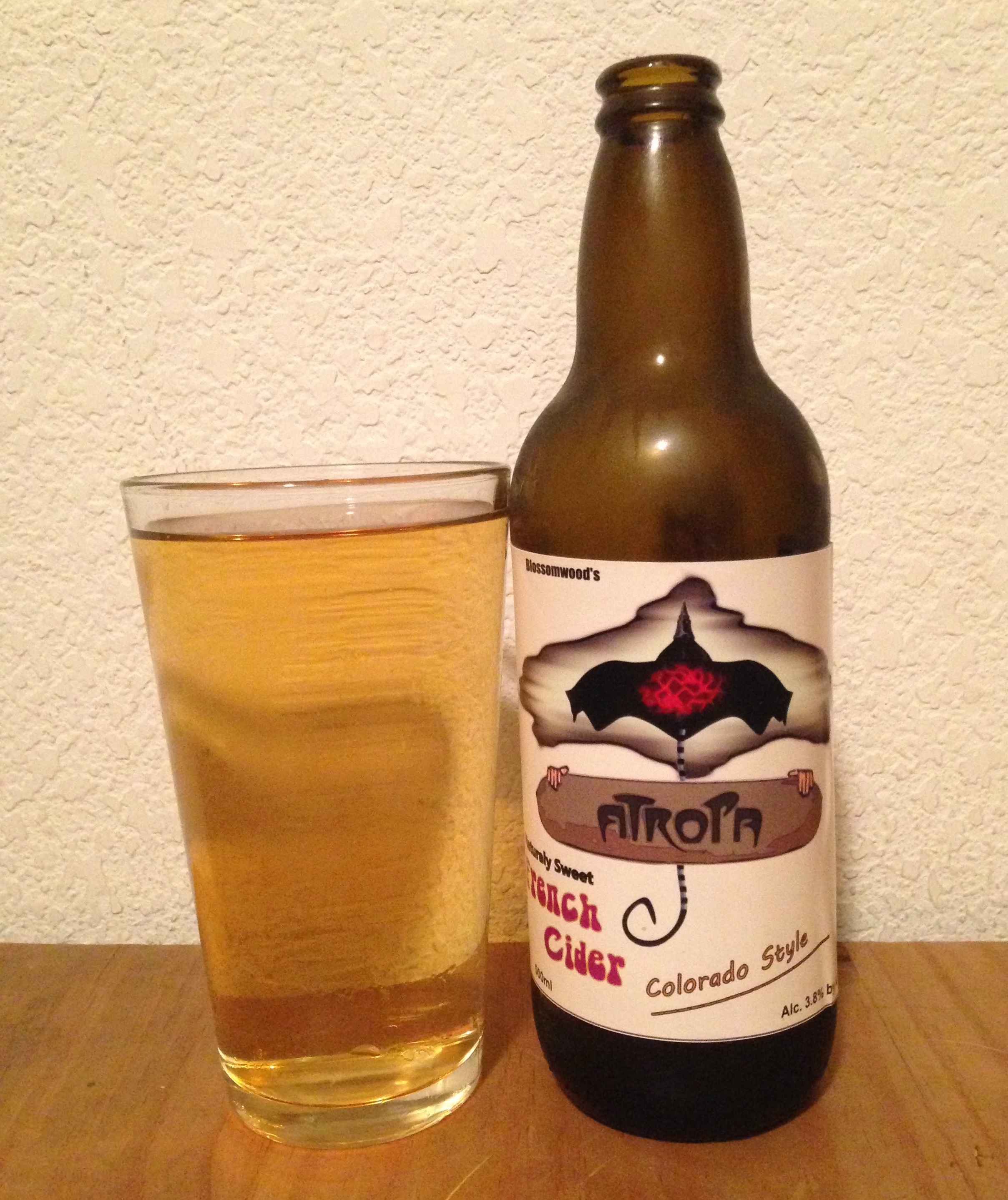Hard Cider Review: Atropa French Cider by Blossomwood Cidery

Atropa is a French hard cider made by Blossomwood Cidery in Cedaredge, Colorado. It is quite sweet as a result of a traditional keeving process: essentially a stuck fermentation achieved on purpose to preserve some residual sugars…in this case, a lot of residual sugar.
It reminds me a bit of JK Scrumpy’s Orchard Gate Gold—mildly tannic, moderately tart, and very sweet. Unlike some very dry, champagne-like ciders, there is no mistaking Atropa for anything but apple juice. It is barely carbonated…it’s a bit like the effect you get when you let a sweet cider slowly self-ferment in the fridge and continue to sip at it periodically—it gets tangier and you start to notice the self-carbonation after a while. But the similarity ends there, since the apple blend in Atropa is clearly selected for hard cider and has a complexity to match.
It’s very mild, with only a hint of perceptible alcohol—it weighs in at 3.8% abv. While the sweetness is a bit much, it’s also 100% apple juice sweetness, and as a result, none of the apple flavor is lost or obscured at all in this. In fact, because the keeving process stops fermentation prior to completion, there’s an interesting depth to the sweetness which I think has to do with the fact that yeast first burn through simple sugars and then move on to the harder-to-process complex sugars, starting first with glucose and moving up the chain. The result is not something you could achieve by back-sweetening the cider after a complete fermentation, because doing so re-introduces simple sugars back into the mix.
If it weren’t for the clarity and carbonation, it would be fairly easy to think that Atropa was a non-alcoholic cider…but it would be delicious in either case. It reminds me a bit of Kerisac, a similarly mild, French hard cider from Brittany.
I decided to add a shot of Calvados to a small wine glass of Atropa to dry it out and intensify it a bit. The result was quite nice, adding some heat and a perceived dryness without obscuring the sweet apple flavor. In other words, I tried to simulate a lower-strength version of Pommeaux, which is Calvados mixed with sweet cider and then aged in oak barrels.
—
Thanks for visiting The Cidersage Blog. If you found this content to be useful, consider subscribing via the Subscribe link in the side bar, and be sure to visit our resources and tutorials pages for more in-depth hard cider and mead information.
Leave a comment